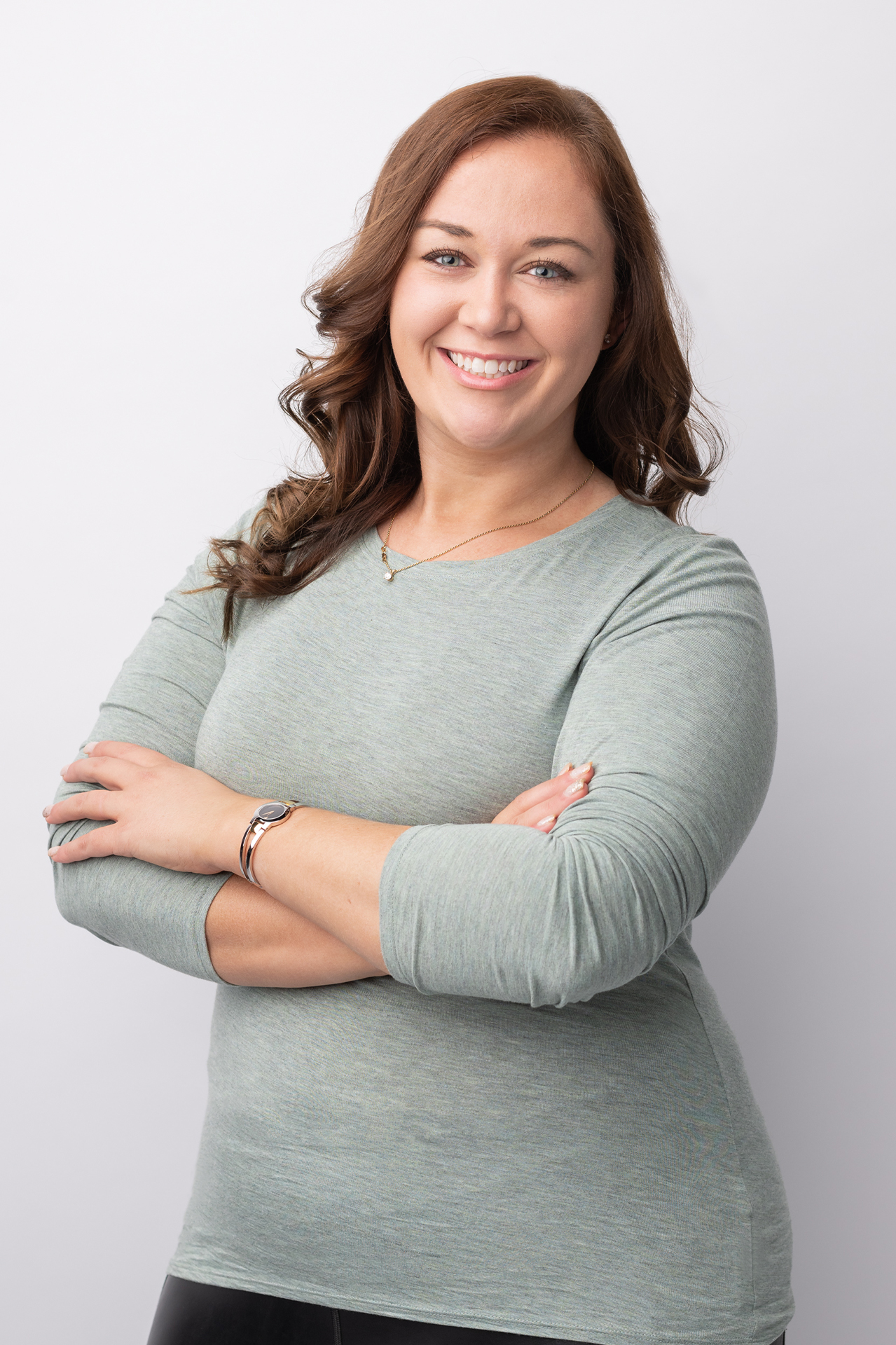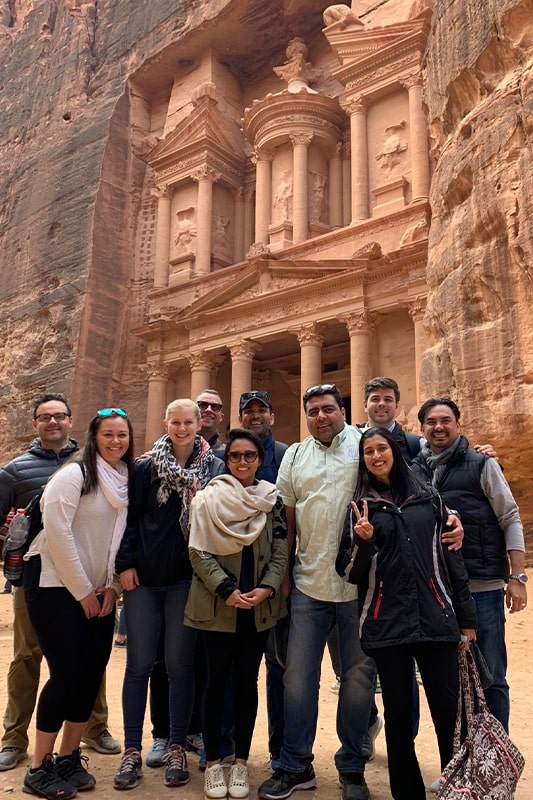
Sadie
Kestner Howes
Vice President Operations, US Health Systems
Half a century ago, Jack Mezirow, a professor at Columbia University, defined a kind of education he called “transformative learning.” It is, he said, a process that does more than transmit information to a student. Rather, it is education that causes a paradigm shift for the student—that changes deeply how she sees the world and sees herself in the world.
Fast-forward to today. Sadie Howes is a student going through a perspective transformation. Part of her shift is accepting that she is gifted enough, deserving enough, and promising enough to be succeeding in an Executive MBA (EMBA) program at the Kellogg School of Management at Northwestern University.
“I just didn’t even think it was in the dimension of possibilities,” she says.
Another part of her perspective transformation is letting in the good will behind the scholarship that is making her MBA studies possible. To support more women to enter the world of business and thrive, a special fund at Kellogg underwrites the graduate education of select female candidates by significantly reducing their tuition costs. It’s an opportunity Sadie did not dream of having.

“As women,” she says, “I just think we have a hard time taking up space, with being okay having a seat at the table. I’d like more women to be comfortable with taking charge and stepping up at the leadership level. I know it’s something I’m working on.”
If the future is female, as the saying goes, that future includes the world of work in all forms. Sadie is one in a rising tide of young women now entering graduate school, the workforce, and the world of business, and transforming all three environments. As they do, other women are helping them succeed on this new playing field through mentorship and scholarships and serving as role models to show the way.
MBA studies are not Sadie’s first perspective transformation. The daughter of a successful female supply chain executive, she grew up moving often (including a stint in Paris) as the family accommodated her mother’s rising career. At one point, the household included four generations, three growing children, and multiple pets: “Magical chaos,” says Sadie. “It was a good environment to learn about operations,” she laughs.
Out of college, Sadie started her career in marketing and advertising and did well. But she knew she was missing something. She wanted work where she was giving back and benefitting others. That led her to marketing for healthcare and hospital systems. At the end of the day, though, the work still felt hollow. She was educating the public about health, but “it was still all about ‘heads in beds,’” she says—maintaining the volume of hospital business. Instead of helping people in hospitals, she wanted to focus on keeping people well and out of hospitals.
Now she has found her way to do that. As Vice President of Operations at U.S. Health Systems, she directs several teams partnering with insurance plans to serve Medicare participants. The teams and the insurance providers collaborate to identify patients most at risk of ending up hospitalized through poor management of chronic diseases, such as diabetes. Then they direct programs to help these more vulnerable populations stay healthy through preventive care, including nurse visits, screenings, education, and other resources.
Moving from marketing into operations has been another perspective transformation for Sadie. Among other challenges, it has meant learning how to work with and gain the respect of long-time, senior healthcare executives in her region who prefer working with folks like them—folks they’ve known forever.
“Finding your voice and your place at the table is, at times, an art form,” says Sadie. “It means understanding the politics of the folks in the room. There are people who respect when you come in and voice your opinion, and there are people who respond defensively. So learning how to manage people and dynamics has been very important for me as a female leader.”
Despite the challenges, what Sadie mostly feels is gratitude for the encouragement she’s received, the chances she’s been given, and the opportunity to pay it forward.
“I’ve been incredibly lucky to have some great women role models and mentors in my life,” says Sadie. “One thing about women: They can be really effective in influencing and encouraging new talent. They solve problems from a different perspective. Not that men can’t—but there’s just something about women that we go there first.”